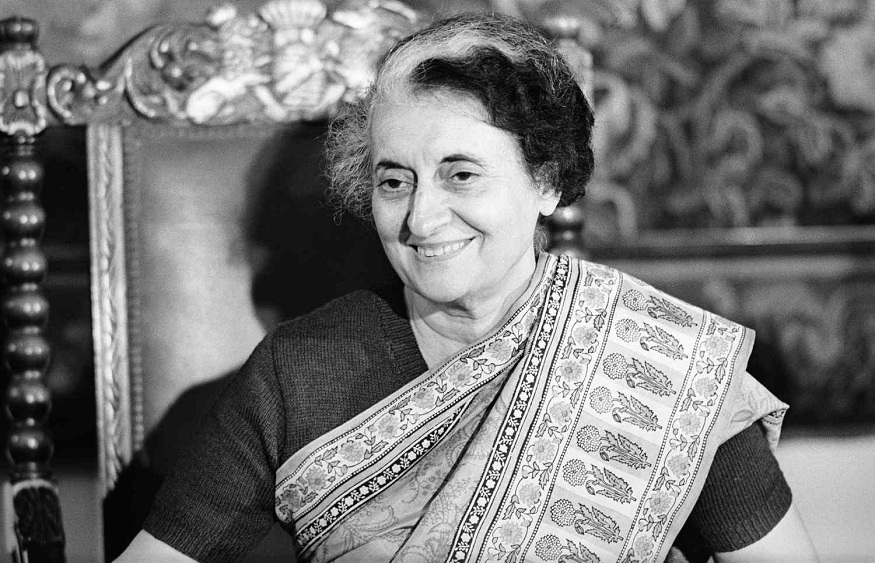Indira Gandhi, the first and only female Prime Minister of India to date, played a pivotal role in establishing India’s nuclear program.
Her leadership and vision during her tenure from 1966 to 1977 and 1980 to 1984 were instrumental in shaping India’s nuclear aspirations.
This article delves into the significant contributions made by Indira Gandhi towards India’s nuclear program and highlights the lasting impact of her efforts.
1. Early Initiatives
In the early years of India’s independence, Prime Minister Jawaharlal Nehru recognized the importance of nuclear technology for the nation’s progress. However, it was during the first woman prime minister of India, Indira Gandhi’s tenure that substantial advancements were made. Gandhi supported and encouraged India’s nuclear scientists, realizing the potential of nuclear energy for India’s development and security.
2. Establishment of BARC and Nuclear Power Plants
The first woman prime minister of India one of the crucial steps was the establishment of the Bhabha Atomic Research Centre (BARC) in Mumbai in 1954. Under the leadership of renowned nuclear physicist Dr. Homi J. Bhabha, BARC became a hub for nuclear research and development in India. Indira Gandhi provided unwavering support to BARC, recognizing its importance in achieving India’s nuclear goals.
Several nuclear power plants were commissioned during her tenure, including Tarapur Atomic Power Station and Rajasthan Atomic Power Station. These initiatives aimed to meet India’s growing energy demands while reducing dependence on fossil fuels. Gandhi understood the significance of nuclear power in ensuring energy security and sustainable development.
3. Smiling Buddha: India’s First Nuclear Test
Indira Gandhi’s most significant contribution to India’s nuclear program came in 1974 when India conducted its first nuclear test, codenamed “Smiling Buddha.” The test, conducted at the Pokhran Test Range in Rajasthan, demonstrated India’s indigenous nuclear capabilities. This milestone achievement positioned India as the sixth country in the world to possess nuclear weapons technology.
4. Nuclear Non-Proliferation Treaty and Pokhran-II
Despite criticism and pressure from various international powers, Indira Gandhi remained committed to India’s nuclear program. In 1974, India, under Gandhi’s leadership, refrained from signing the Nuclear Non-Proliferation Treaty (NPT). She defended India’s decision by advocating for global nuclear disarmament rather than accepting a discriminatory treaty.
In 1998, four years after her assassination, India conducted a series of nuclear tests at the Pokhran Test Range, known as Pokhran-II. These tests showcased India’s nuclear capabilities and reaffirmed its status as a nuclear power. The groundwork laid by Indira Gandhi’s policies and vision significantly contributed to India’s success in these tests.
5. Indira Gandhi’s Legacy
Indira Gandhi the first woman prime minister of India contributed to India’s nuclear program and left a lasting legacy. Her determination and commitment to making India self-reliant in the nuclear field paved the way for future advancements. Today, India has emerged as a prominent player in the global nuclear arena, with a strong infrastructure, skilled workforce, and indigenous research and development capabilities.
Indira Gandhi’s vision for India’s nuclear program extended beyond military applications. She recognized the importance of nuclear energy for peaceful purposes, such as power generation and medical applications. Her efforts laid the foundation for India’s continued pursuit of nuclear energy, leading to the establishment of more nuclear power plants across the country.
Conclusion
Indira Gandhi the first woman prime minister of India pivotal role in establishing India’s nuclear program cannot be understated. Her unwavering support for nuclear research, the establishment of critical institutions, and successful nuclear tests positioned India as a nuclear power on the global stage. Today, India continues to build upon its legacy, furthering its nuclear ambitions while maintaining a commitment to the peaceful and responsible use of nuclear technology. Indira Gandhi’s contributions will forever be remembered as a cornerstone in India’s journey toward becoming a technologically advanced nation in the nuclear domain.











